The Elephant Rope
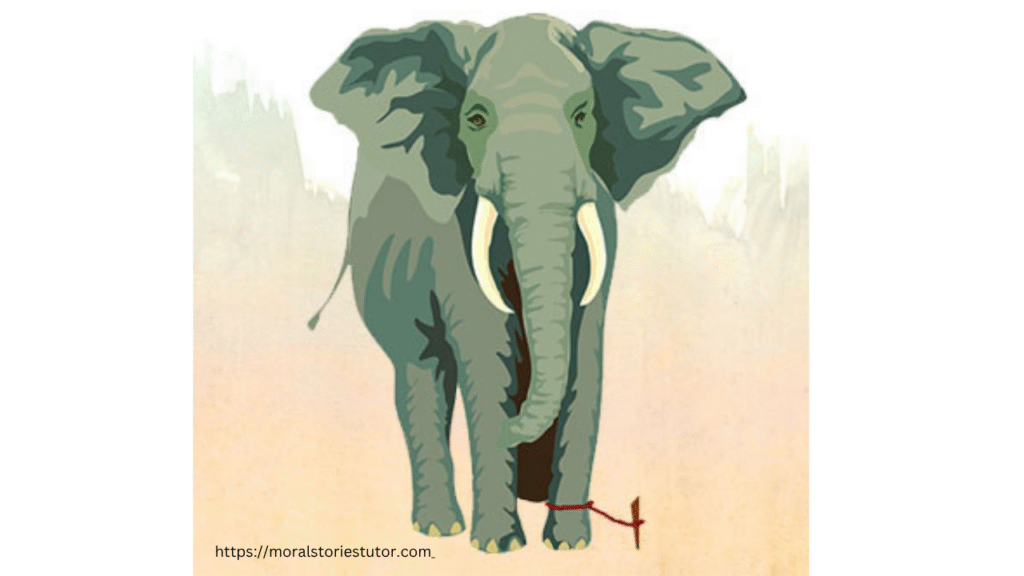
A man was walking nearby to a group of elephants that was halted by a small rope tied to their front leg. He was amazed by the fact that the huge elephants are not even making an attempt to break the rope and set themselves free.
He saw an elephant trainer standing beside them and he expressed his puzzled state of mind. The trainer said “when they are very young and much smaller we use the same size rope to tie them and, at that age, it’s enough to hold them.
As they grow up, they are conditioned to believe they cannot break away. They believe the rope can still hold them, so they never try to break free.”
Moral: It is the false belief of the elephants that denied their freedom for life time. Likewise, many people are not trying to work towards success in their life just because they failed once before. So keep on trying and don’t get tied up with some false beliefs of failure.
Kentucky Fried Chicken
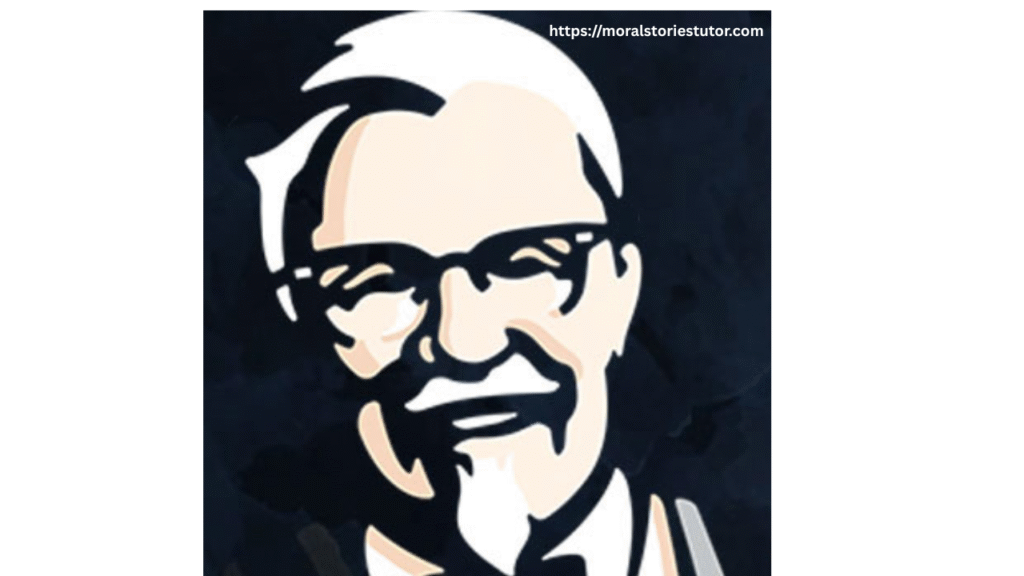
The real-life story of Colonel Harland Sanders who was disappointed umpteen times in his life and still made his dream come true late in his life is really inspiring.
He is a seventh grade dropped out who tried many ventures in life but tasted bitter every time. He started selling chicken at his age of 40 but his dream of a restaurant was turned down many times due to conflicts and wars.
Later he attempted to franchise his restaurant. His recipe got rejected 1,009 times before the final approval. And soon the secret recipe, “Kentucky Fried Chicken” became a huge hit worldwide. KFC was expanded globally and the company was sold for 2 million dollars and his face is still celebrated in the logos.
Moral: Have you stopped your attempts to a venture just because you were rejected or failed a few times? Can you even accept a failure of 1009 times? This story inspires everyone to try hard and believe in yourself until you see success despite how many times you have failed.
Shark Bait
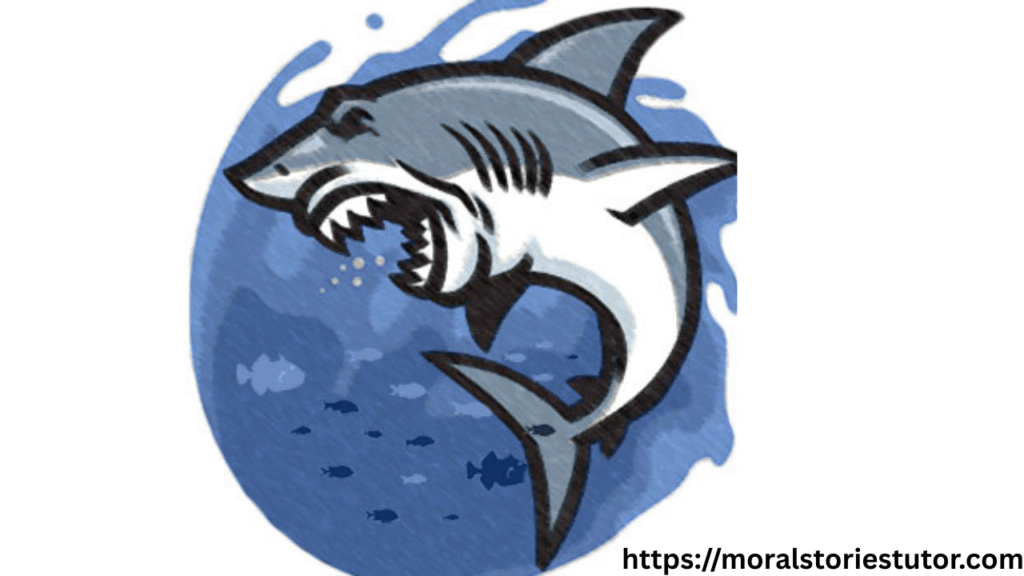
A marine biologist put a shark into a big tank at the time of a research experiment. Followed by that, he released some tiny bait fishes into it.
As expected, the shark didn’t wait to attack those fishes and ate them. Later, a clear fiberglass was inserted into the tank which partitioned the tank into two and the shark remained in one side.
A similar set of bait fish was sent to the other side of the tank like before. And the shark attempted to attack those fishes but failed by hitting on the fiberglass.
The shark attempted for several days until it gave up. Later, the biologist removed the glass from the tank but the shark didn’t try to attack the small fishes.
The shark always continues to see a false barrier in the tank and stopped his attempts.
Moral: It is quite common for many people to give up after many setbacks and failures. The story is an example for keep trying always and to never give up despite multiple failures.
Thinking Out of the Box
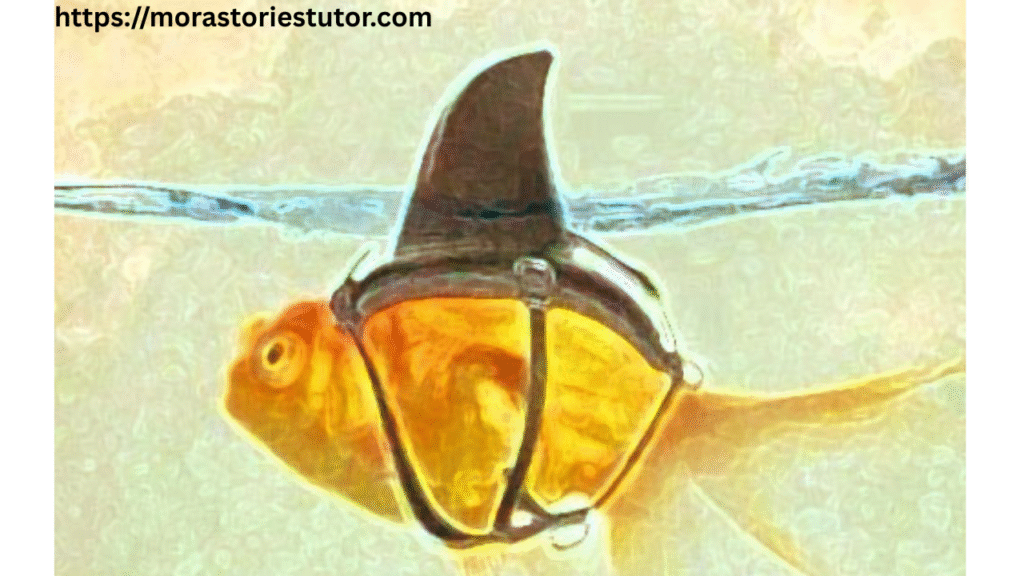
Once upon a time, a merchant named Sam owed a huge sum of money to Tom, a money lender. The time came when the merchant ran out of the last chance given to him to give the money back.
Sam had a beautiful daughter who was very affectionate with her father. Tom asked the merchant to give all the money back failing which he will marry his beautiful daughter.
Tom was not at all good looking and ill minded and so the merchant was in dilemma. Tom proposed a new condition. There was a mix of black and white pebbles on the ground where they were standing. He will take two pebbles on both hands, one will be white and the other will be black.
If the daughter correctly chooses the white pebble, then Tom will write off all the debt and leave the marriage proposal too. But if she chooses the black pebble, he will write off the debt but will marry the daughter.
Tom bent down to pick the pebbles from the ground and the daughter noticed that he took black pebbles on both hands. The girl had three choices- to notify the same to her father which may provoke Tom, take the black pebble and sacrifice her life or simply refuse to take the pebble which might land her father into trouble. But what she did totally surprise Tom.
She took the pebble from his hand and ‘accidentally’ the pebble fell off from her hand to ground. She then asked Tom to see which color pebble was left in his hand to identify the color she picked. Tom had no other choice but to show the black color pebble in his hand and set both of them free.
Moral: Sometimes, life offers you situations which not only demands hard work and perseverance but some creative thinking which saves the situation.
The Group of Frogs
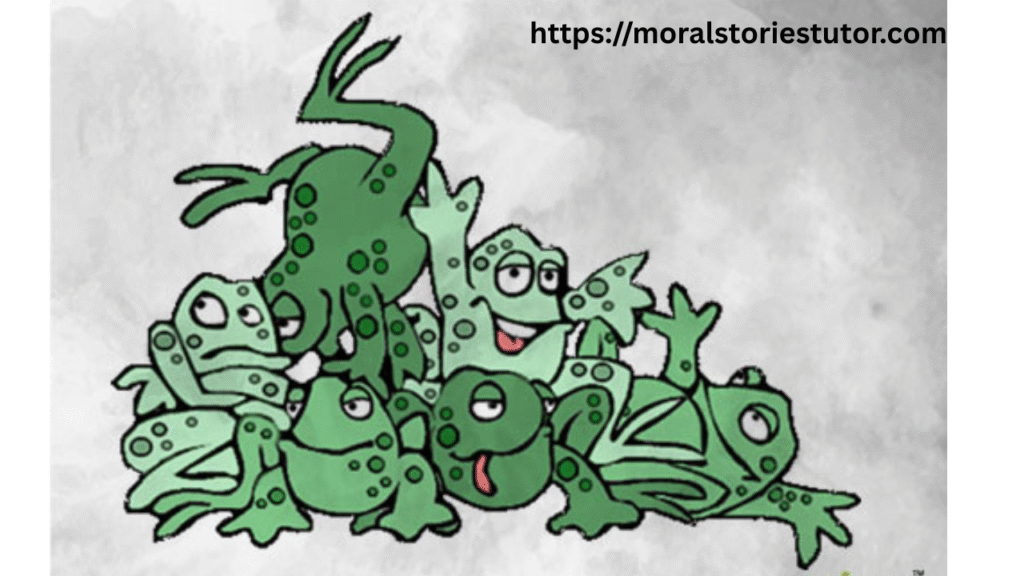
Some frogs were traveling through woods and two of them accidentally fell into a pit. The other frogs which were safe upside understood how deep the pit was and saw no hope for the frogs to escape out of it.
Both of these frogs started trying to get out of the pit but failed many times. The frogs on the safe side shouted at them to give up the pain of trying as it was not possible.
Eventually, one frog heard the other frogs and decided to stop trying and fell down to death. However, the other frog went on trying and at last managed to reach the top.
The other frogs asked him, “Did you not hear us?” He explained that he was deaf and thought other frogs were encouraging him to get out.
Moral: Some people around you may ask you to be on a safer side always and stop trying and taking risks. However, there is no gain without pain. So try hard to achieve success in life despite what life offers you.
Rocks, Pebbles, and Sand
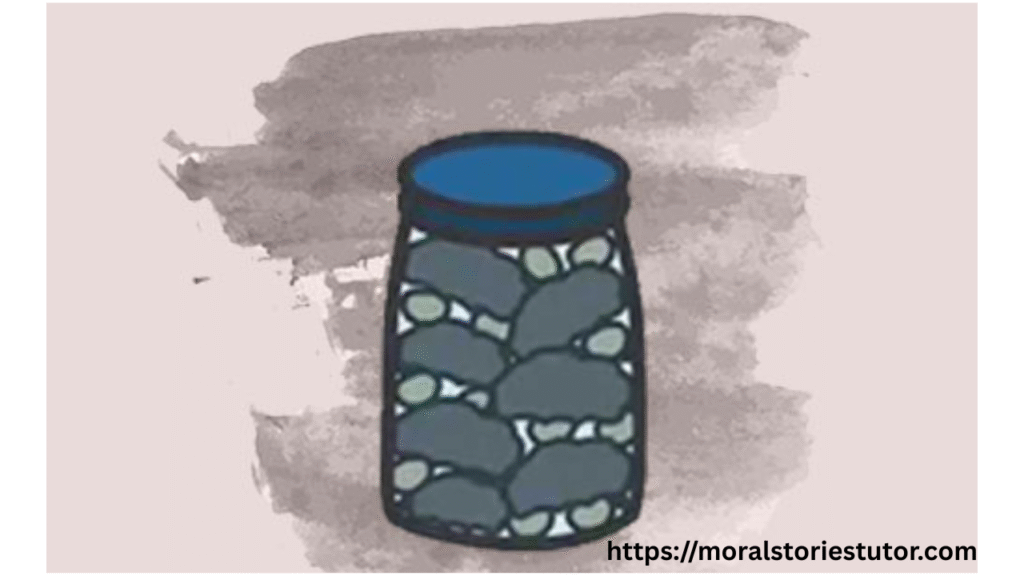
Once a professor entered the classroom with a glass jar, rocks, pebbles, and sand. The students were amused to see what he was up to. First, he started filling the rock parts into the jar until he couldn’t add any more.
He asked the students if the jar was full and everybody nodded yes. He then started putting the pebbles inside the jar which went inside through the small gaps and he shakes the jar to allow the pebbles to get into those vacant spaces in between the rocks.
He asked the same question to the students and they again said that the jar was full. Finally, he poured the sand inside the jar which went through the minute gaps and got filled in the jar.
The professor explained that this is how you should set priorities in life. Rock is like your family, while pebbles are like your career while sand is like the least priorities in life and unnecessary quarrels and egos.
If you put sand on the jar first, it will get easily filled up leaving no space for rocks and pebbles.
Moral: You should identify your priorities in life and develop a good strategy to work towards fulfilling it rather than wasting your time and effort on unnecessary aspects of life.
Struggles develop strength
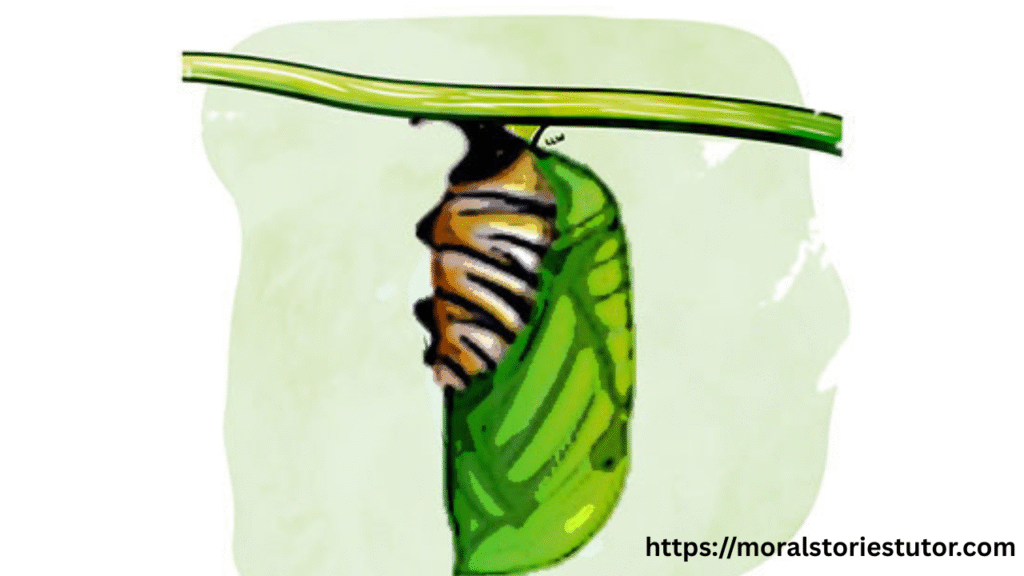
One day a man was passing by a garden when he saw a butterfly cocoon which was about to get open.
He saw a small opening on it and watched the several hours of struggles the butterfly came through to get the body out of it. After many hours, it seemed that the butterfly stopped trying as there was no progress.
He thought to help the butterfly by cutting the cocoon with a scissor. So the butterfly came out easily but the wings were shriveled and the body was tiny and withered.
Unfortunately, the butterfly was not able to take flight and spend the rest of life crawling with a wounded body.
Moral: This is nature’s way of telling the importance of struggles in life. Sometimes, different kinds of struggles are needed in life to make you stronger in the future. Never feel disappointed in life and stop trying when life offers you struggles but keep on fighting until you see success.
Seeing opportunity in obstacles
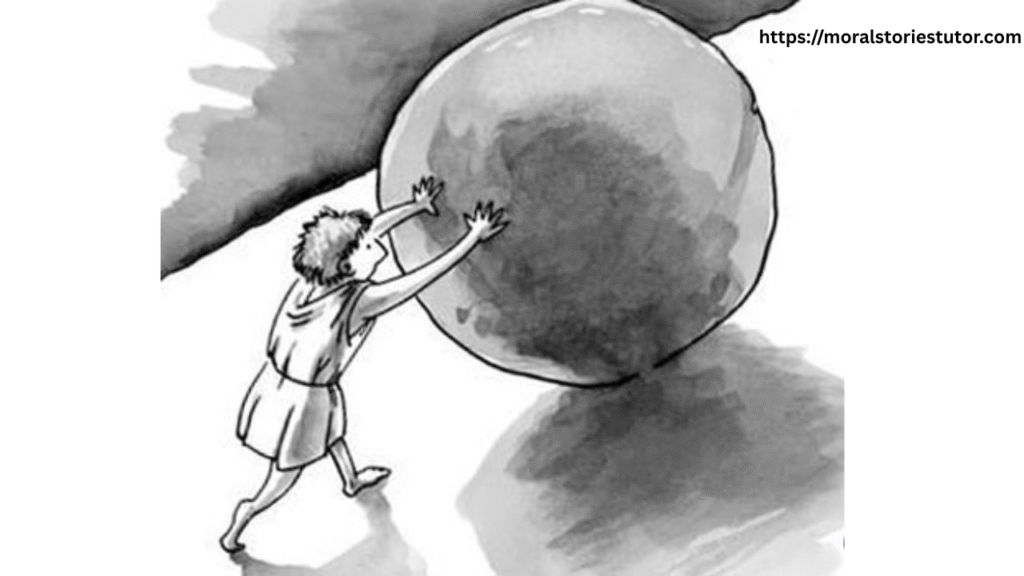
Once there was a king who was curious but wealthy. He decided to test his fellow people to know who has a got a good attitude in life and who would spare some time for country’s progress.
He placed a huge boulder right at the middle of the road and hid in a nearby place to see if anyone would make an attempt to move it off.
He saw some wealthy merchants and courtiers passing by the road. None of them made any attempt to move it off but simply walked away while some others blamed the king for not maintaining roads.
Later, a peasant came the way with a load of vegetables and saw the boulder. He kept his load down and tried to move the boulder away. After strenuous effort, he succeeded in moving it away. He saw a purse lying in the place of the boulder.
It contained many gold coins and a note from the king which read ‘this is the reward for the person who moves the boulder away’.
Moral: It is quite common for people to run away from problems and obstacles. But the story clearly shows the importance of seeing an opportunity in every obstacle which might improve our condition. Invest some time to remove obstacles on your way and experience many unseen presences.
Shake off problems
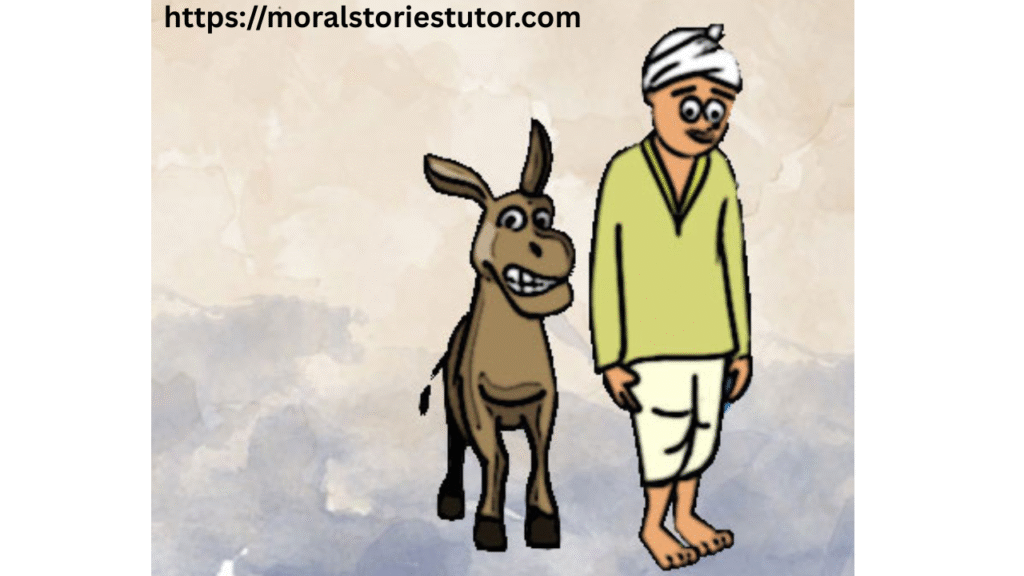
A man and his donkey were on the way to grazing while the donkey fell into a huge pit. The man was shaken and tried hard to pull off his favorite donkey up to the ground.
Despite his strenuous attempts, he failed to bring the donkey back. But he can’t leave the donkey to starve and die with pain for days.
So he decided to bury him alive and make his death smoother. So he started pouring soil over the donkey in the pit. When he poured the soil, the donkey felt the load and shakes it off and he steps on it.
He does the same every time when the soil was poured on his body. In the end, he reached the ground level and easily walked away to graze in the green pastures.
Moral: Don’t choose to live with your problem. Just shake off your problems and stand on it and step up in life after learning from them. Every bad experience is a new learning. So get the positives out of it and work towards your goals.
Let go of your stresses
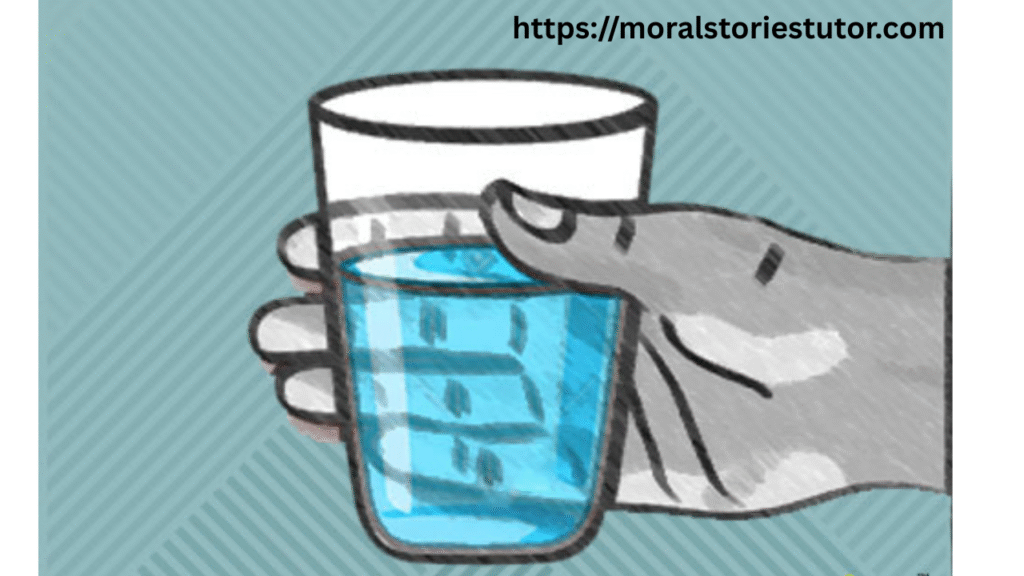
A psychology professor entered the classroom with half a glass of water in his hand. The students expected the old common question “was it half empty or half full?” But to the surprise, he asked them “How heavy is this glass of water?”
The answers given by the students ranged from 7 oz. To 25 oz. But the professor replied that the actual weight of the glass with water doesn’t always matter but how long you hold the glass is what matters.
If you hold the glass for a minute, you won’t feel much weight. But if you hold for 10 minutes, you will feel a little more weight and it gets heavier for you with hours.
If you hold it for the entire day, then your hands would go numb and pain. Similar is the case when you carry stress with you. If you think about it for a while and leave it, then there is no problem but if you think about it for hours, it starts becoming a problem and it becomes worse if you sleep with it.
Moral: You should learn to let go of your stresses and never sleep with it. If you can do something about it, just do it. In the other case, just leave it and work towards your goals or else it just kills your productivity.
Value yourself

A speaker started off his seminar by showing a $20 to the public. He asked the people “who wants this?” There was no surprise to see that all of them lifted their hands. He offered to give the money to one of them but insisted that he will do something to it.
He crumpled the paper money and showed it again to the crowd and repeated the question. Still, everyone raised the hands. He then put the money into the ground and stepped on it and then raised it again and offered it to the public.
The people gathered there still showed interest to take that money despite seeing how dirty the note was. He told the public” No matter what I did to this money, you all still wanted this.
You all went in favor of my offer just because the value of the money never decreased despite what all I did to it. Similarly, value yourself despite the painful conditions or failures”
Moral: Believe in yourself and work hard to achieve success. Value yourself irrespective of the failures or obstacles and don’t degrade yourself just because of the temporary setbacks.
Sharpen your ‘axe’

There was a newly joined woodcutter and the king was really impressed by his dedication towards his work. Out of encouragement, he started giving his best in work and cut 18 trees in the first month and the king was glad.
The next month he put in the same effort but could cut only 15 trees. And the third month, he still tried his best but could cut only 12 trees. The king visited him the third month and talked about his decrease in productivity.
He explained that he might have lost his strength or got too old to do the work. The king asked him “when was the last time you sharpened your ax?” To the surprise, he has not even done it once in the last three months. That was the only reason why he couldn’t cut more trees.
Moral: It is good that you put in a lot of effort and hard work to work towards your goals. But you should balance your life priorities and invest time with your family and save some time to relax which would boost up your productivity.
These are just a few among the many motivational stories that guide students to work hard on many aspects of life and grow successful. Such inspirational stories can help students to keep moral values in life despite whatever life offers them.
The False Human Belief
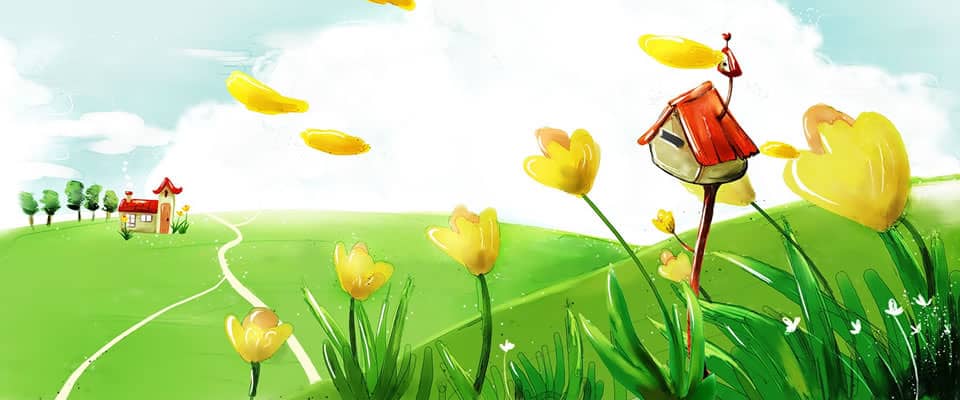
As a man was passing the elephants, he suddenly stopped, confused by the fact that these huge creatures were being held by only a small rope tied to their front leg. No chains, no cages. It was obvious that the elephants could, at any time can break away from their bonds but for some reason, they did not.
He saw a trainer nearby and asked why these animals just stood there and made no attempt to get away. “Well,” trainer said, “when they are very young and much smaller we use the same size rope to tie them and, at that age, it’s enough to hold them. As they grow up, they are conditioned to believe they cannot break away. They believe the rope can still hold them, so they never try to break free.”
The man was amazed. These animals could at any time break free from their bonds but because they believed they couldn’t, they were stuck right where they were.
Like the elephants, how many of us go through life hanging onto a belief that we cannot do something, simply because we failed at it once before?
Moral: Failure is a part of learning. We should never give up the struggle in life. You Fail not because you are destined to fail, but because there are lessons which you need to learn as you move on with your life.
The Praying Hands
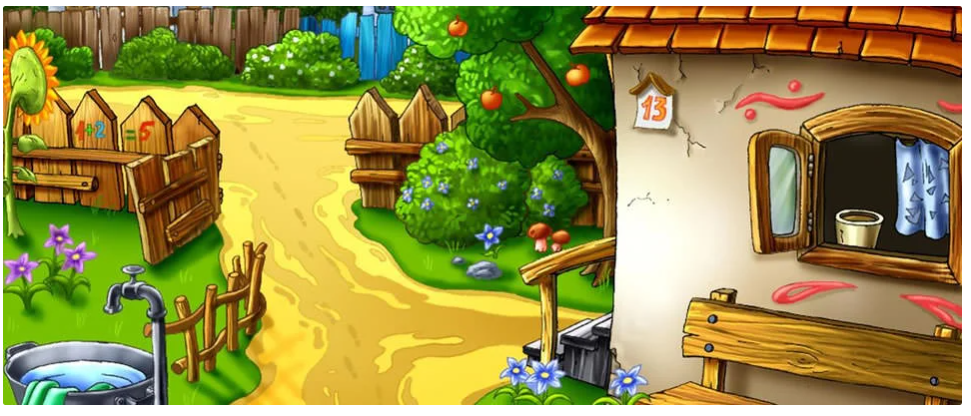
Back in the fifteenth century, in a tiny village near Nuremberg, lived a family with eighteen children. Eighteen! In order merely to keep food on the table for his big family, the father, a goldsmith by profession, worked almost eighteen hours a day at his shop and any other paying work he could find in the neighbourhood. Despite their seemingly hopeless condition, two of the eldest children had a dream. They both wanted to pursue their talent for art, but they knew well that their father would never be financially able to send either of them to Nuremberg to study at the Academy.
After many long discussions at night in their crowded bed, the two boys finally worked out a pact. They would toss a coin. The loser would go down into the nearby mines and with his earnings, support his brother while he attended the academy. The winner of the toss will attend the academy first and complete his study. Once, the first winner of the toss completes his study, he will help the other brother to attend the academy and support him financially by selling arts or working at the mines if necessary.
They tossed a coin on a Sunday morning after church. Albrecht Durer, one of the brother won the toss and went off to Nuremberg. Albert, the other brother went to work at the mines and for the next four years, financed his brother, whose work at the academy was almost an immediate sensation. Albrecht’s etchings, his woodcuts, and his oils were far better than most of his professors. By the time he graduated, he was beginning to earn considerable fees for his commissioned works.
When the young artist returned to his village, the Durer family held a festive dinner on their lawn to celebrate Albrecht’s triumphant homecoming. After a long and memorable meal, punctuated with music and laughter, Albrecht rose from his honoured position at the head of the table to drink a toast to his beloved brother for the years of sacrifice that had enabled Albrecht to fulfil his ambition. His closing words were, “And now, Albert, blessed brother of mine, now it is your turn. Now you can go to Nuremberg to pursue your dream and I will take care of you.”
All heads turned in eager expectation to the far end of the table where Albert sat, tears streaming down his pale face, shaking his lowered head from side to side while he sobbed.
Finally, Albert rose and wiped the tears from his cheeks. He glanced down the long table at the faces he loved, and then, holding his hands close to his right cheek, he said softly, “No, brother. I cannot go to Nuremberg. It is too late for me. Look what four years in the mines have done to my hands! The bones in every finger have been smashed at least once, and lately, I have been suffering from arthritis so badly in my right hand that I cannot even hold a glass to return your toast, much less make delicate lines on parchment or canvas with a pen or a brush. My brother, for me, it is too late.”
More than 450 years have passed. By now, Albrecht Durer’s hundreds of masterful portraits, pen and silver-point sketches, watercolours, charcoals, woodcuts, and copper engravings hang in every great museum in the world, but the odds are great that you, like most people, are familiar with only one of Albrecht Durer’s works. More than merely being familiar with it, you very well may have a reproduction hanging in your home or office.
One day, to pay homage to Albert for all that he had sacrificed, Albrecht Durer painstakingly drew his brother’s abused hands with palms together and thin fingers stretched skyward. He called his powerful drawing simply “Hands,” but the entire world almost immediately opened their hearts to his great masterpiece and renamed his tribute of love “The Praying Hands.”
Moral: The next time you see a copy of that touching creation, take a second look. Remember the sacrifice others may have made for your success in life. Always, respect them and care for them as what they could have done for themselves, they did that for your happiness.
Keep Your Dream
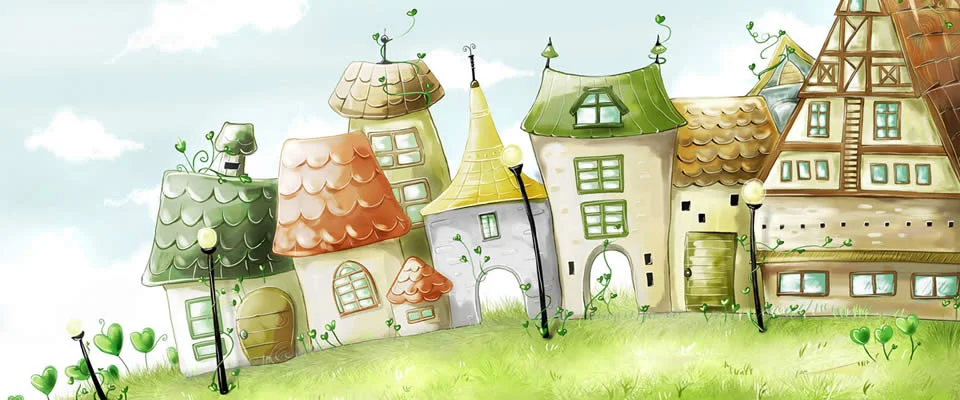
I have a friend named Monty Roberts who owns a horse ranch in San Isidro. He had let me use his horse ranch to put on fund-raising events to raise money for youth at risk programs.
The last time I was there he introduced me by saying, “I want to tell you why I let you use my horse ranch. It all goes back to a story about a young man who was the son of an itinerant horse trainer who would go from stable to stable, race track to race track, farm to farm and ranch to ranch, training horses. As a result, the boy’s high school career was continually interrupted. When he was a senior, he was asked to write a paper about what he wanted to be and do when he grew up.”
“That night he wrote a seven-page paper describing his goal of someday owning a horse ranch. He wrote about his dream in great detail and he even drew a diagram of a 200-acre ranch, showing the location of all the buildings, the stables, and the track. Then he drew a detailed floor plan for a 4,000-square-foot house that would sit on a 200-acre dream ranch.”
He put a great deal of his heart into the project and the next day he handed it into his teacher. Two days later he received his paper back. On the front page was a large red F with a note that read, `See me after class.’
The boy with the dream went to see the teacher after class and asked, `Why did I receive an F?’
The teacher said, `This is an unrealistic dream for a young boy like you. You have no money. You come from an itinerant family. You have no resources. Owning a horse ranch requires a lot of money. You have to buy the land. You have to pay for the original breeding stock and later you’ll have to pay large stud fees. There’s no way you could ever do it.’ Then the teacher added, `If you will rewrite this paper with a more realistic goal, I will reconsider your grade.’
The boy went home and thought about it long and hard. He asked his father what he should do. His father said, `Look, son, you have to make up your own mind on this. However, I think it is a very important decision for you.’ Finally, after sitting with it for a week, the boy turned in the same paper, making no changes at all.
He stated, “You can keep the F and I’ll keep my dream.”
Monty then turned to the assembled group and said, “I tell you this story because you are sitting in my 4,000-square-foot house in the middle of my 200-acre horse ranch. I still have that school paper framed over the fireplace.” He added, “The best part of the story is that two summers ago that same schoolteacher brought 30 kids to camp out on my ranch for a week.” When the teacher was leaving, he said, “Look, Monty, I can tell you this now. When I was your teacher, I was something of a dream stealer. During those years I stole a lot of kids dreams. Fortunately, you had enough gumption not to give up on yours.”
Moral: Don’t let anyone steal your dreams. Follow your heart, no matter what. No Dream is too big or too small when one works hard to live it. One should always try making dreams come true no matter what.
Baby Camel and Mother
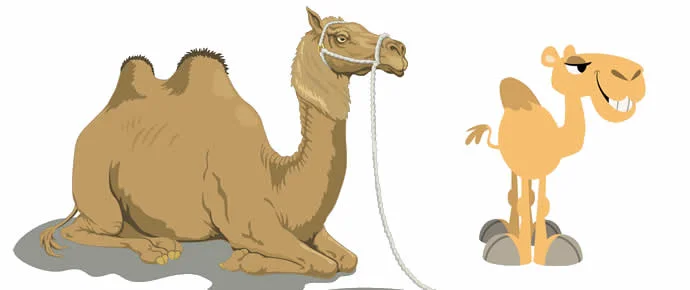
A mother and a baby camel were lying around, and suddenly the baby camel asked, “mother, may I ask you some questions? The mother said, “Sure! Why son, is there something bothering you? Baby said, “Why do camels have humps?” The mother said, “Well son, we are desert animals, we need the humps to store water and we are known to survive without water”.
Baby said, “Okay, then why are our legs long and our feet rounded?” The mother said, “Son, obviously they are meant for walking in the desert. You know with these legs I can move around the desert better than anyone does!” Baby said, “Okay, then why are our eyelashes long? Sometimes it bothers my sight”. Mother with pride said, “My son, those long thick eyelashes are your protective cover. They help to protect your eyes from the desert sand and wind”.
Baby after thinking said, “I see. So the hump is to store water when we are in the desert, the legs are for walking through the desert and these eyelashes protect my eyes from the desert than what in god’s name are we doing here in the Zoo!?”
Moral: Skills, knowledge, abilities and experiences are only useful if you are at the right place.
Boy’s Weakness
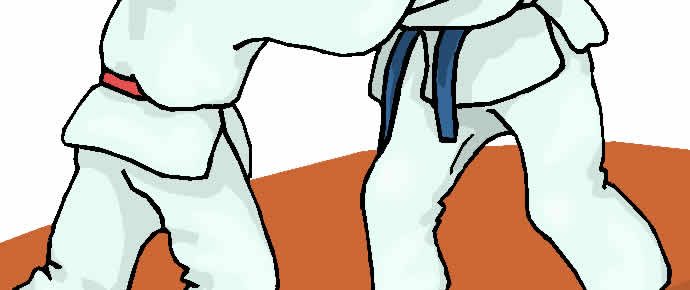
A 10-year-old boy decided to study judo despite the fact that he had lost his left arm in a devastating car accident.
The boy began lessons with an old Japanese judo master. The boy was doing well, so he couldn’t understand why, after three months of training the master had taught him only one move. “Sensei,”(Teacher in Japanese) the boy finally said, “Shouldn’t I be learning more moves?” “This is the only move you know, but this is the only move you’ll ever need to know,” the sensei replied.
Not quite understanding, but believing in his teacher, the boy kept training. Several months later, the sensei took the boy to his first tournament. Surprising himself, the boy easily won his first two matches. The third match proved to be more difficult, but after some time, his opponent became impatient and charged; the boy deftly used his one move to win the match. Still amazed by his success, the boy was now in the finals.
This time, his opponent was bigger, stronger, and more experienced. For a while, the boy appeared to be overmatched. Concerned that the boy might get hurt, the referee called a time-out. He was about to stop the match when the sensei intervened. “No,” the sensei insisted, “Let him continue.” Soon after the match resumed, his opponent made a critical mistake: he dropped his guard. Instantly, the boy used his move to pin him. The boy had won the match and the tournament.
He was the champion. On the way home, the boy and sensei reviewed every move in each and every match. Then the boy summoned the courage to ask what was really on his mind.
“Sensei, how did I win the tournament with only one move?”
“You won for two reasons,” the sensei answered. “First, you’ve almost mastered one of the most difficult throws in all of the judo. And second, the only known defense for that move is for your opponent to grab your left arm.”
The boy’s biggest weakness had become his biggest strength.
Moral: Sometimes we feel that we have certain weaknesses and we blame God, the circumstances or ourselves for it but we never know that our weaknesses can become our strengths one day. Each of us is special and important, so never think you have any weakness, never think of pride or pain, just live your life to its fullest and extract the best out of it!
Learning from Mistakes

Thomas Edison tried two thousand different materials in search of a filament for the light bulb. When none worked satisfactorily, his assistant complained, “All our work is in vain. We have learned nothing, Not sure if we can use an electricity properly.”
Edison replied very confidently, “Oh, we have come a long way and we have learned a lot. We know that there are two thousand elements which we cannot use to make a good light bulb.”
Moral: We can also learn from our mistakes.
The Lion and The Mouse
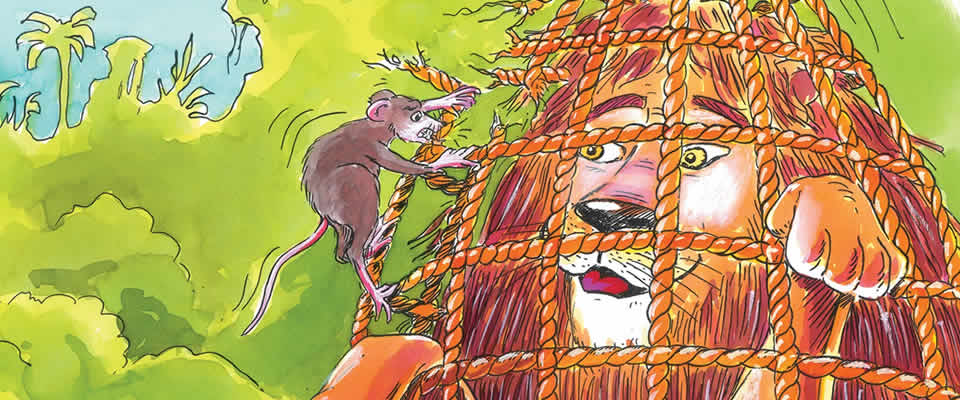
A Mouse running over his face awakened a Lion from sleep. Rising up angrily, he caught him and was about to kill him. Then the Mouse piteously entreated, saying:
“If you would only spare my life, I would be sure to repay your kindness.” The Lion laughed at him but allowed him to go. It happened shortly after this that some hunters, who bound him by strong ropes to the ground, caught the Lion. The Mouse, recognizing his roar, came and gnawed the rope with his teeth, and set him free, exclaiming:
“You ridiculed the idea of my ever being able to help you, never expecting to receive from me any repayment of your favor, Now you know that it is possible for even a Mouse to confer benefits on a Lion.”
Moral: It is possible for even a Mouse to confer benefits on a Lion.
The Dreaming Priest
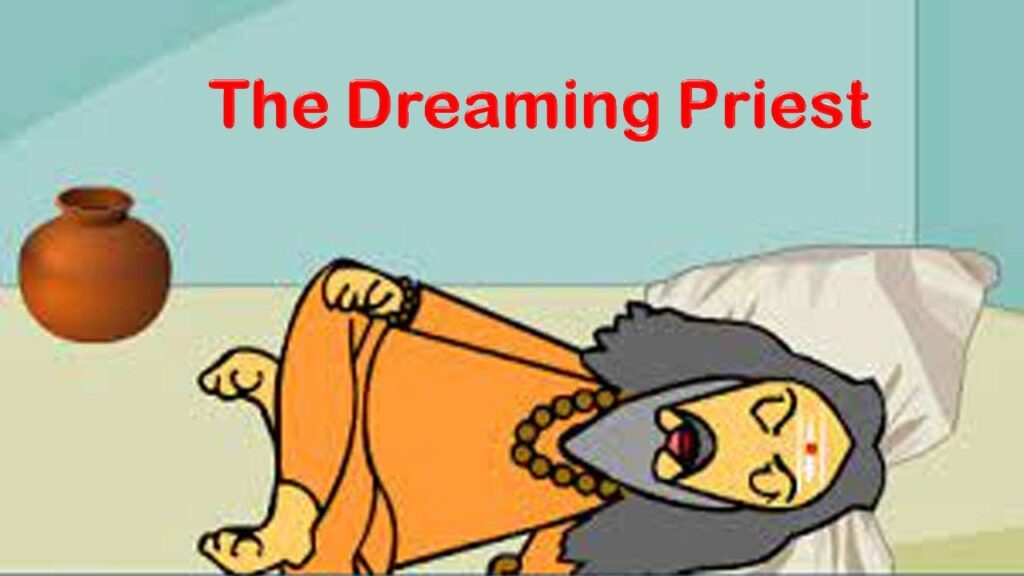
Long time ago there lived a priest who was extremely lazy and poor at the same time. He did not want to do any hard work but used to dream of being rich one day. He got his food by begging for alms. One morning he got a pot of milk as part of the alms. He was extremely delighted and went home with the pot of milk. He boiled the milk, drank some of it and put the remaining milk in a pot. He added slight curds in the pot for converting the milk to curd. He then lay down to sleep.
Soon he started imagining about the pot of curd while he lay asleep. He dreamed that if he could become rich somehow all his miseries would be gone. His thoughts turned to the pot of milk he had set to form curd. He dreamed on; “By morning the pot of milk would set, it would be converted to curd. I would churn the curd and make butter from it. I would heat the butter and make ghee out of it. I will then go to that market and sell that ghee, and make some money. With that money i will buy a hen. The hen will lay may eggs which will hatch and there will be many chicken. These chicken will in turn lay hundreds of eggs and I will soon have a poultry farm of my own.” He kept on imagining.
“I will sell all the hens of my poultry and buy some cows, and open a milk dairy. All the town people will buy milk from me. I will be very rich and soon I shall buy jewels. The king will buy all the jewels from me. I will be so rich that I will be able to marry an exceptionally beautiful girl from a rich family. Soon I will have a handsome son. If he does any mischief I will be very angry and to teach him a lesson, I will hit him with a big stick.”During this dream, he involuntarily picked up the stick next to his bed and thinking that he was beating his son, raised the stick and hit the pot. The pot of milk broke and he awoke from his day dream.
Moral: There is no substitute for hard work. Dreams cannot be fulfilled without hard work.


